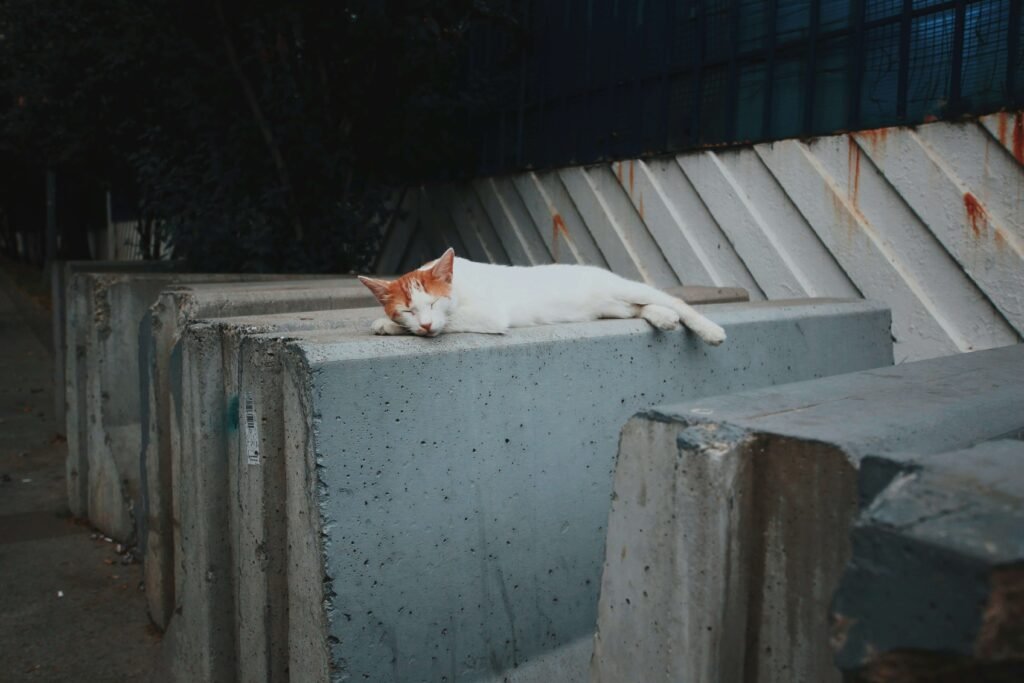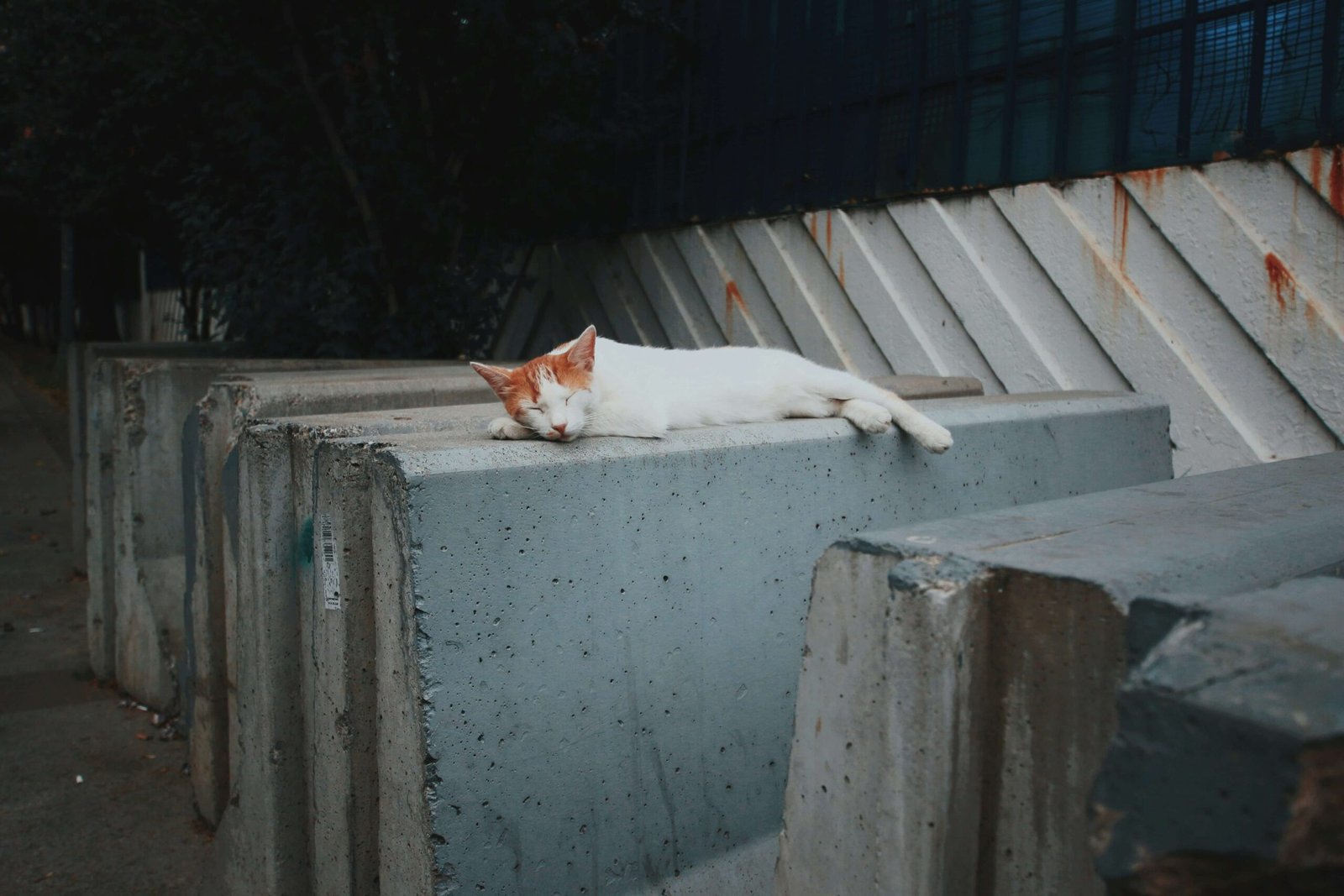Why Does My Cat Meow at Night? Decoding Feline Nocturnal Behavior
Cats are known for their mysterious and sometimes quirky behaviors, and nighttime meowing is one of the most common concerns among cat owners. Whether it’s a soft chirp or a loud, persistent yowl, your cat’s nighttime vocalizations can disrupt your sleep and leave you wondering what’s going on in their feline mind. While it may seem random or even frustrating, there’s usually a reason behind this behavior. In this blog post, we’ll explore why your cat meows at night, how to address it, and ways to ensure both you and your furry companion get a good night’s rest.
Common Reasons Why Cats Meow at Night
Understanding why your cat meows at night is the first step toward addressing the issue. Here are some common reasons behind this behavior:
Hunger or Thirst
Cats may meow at night if they’re hungry or thirsty, especially if they haven’t had enough food or water during the day.Loneliness or Boredom
Cats are social creatures, and they may meow to seek attention or companionship when they feel lonely.Natural Instincts
Cats are crepuscular animals, meaning they’re most active during dawn and dusk. This instinct can lead to increased activity and vocalization at night.Aging or Cognitive Decline
Older cats may experience cognitive dysfunction, which can cause confusion and nighttime meowing.Medical Issues
Pain, discomfort, or underlying health problems like urinary tract infections or arthritis can cause excessive meowing.
By identifying the root cause of your cat’s nighttime meowing, you can take steps to address their needs effectively.
How to Respond to Your Cat’s Nighttime Meowing
When your cat meows at night, responding appropriately is key to managing the behavior. Here are some strategies to consider:
Establish a Routine
Feed your cat, play with them, and provide attention at consistent times each day to help regulate their schedule.Ignore Unwanted Behavior
If your cat meows for attention, avoid reinforcing the behavior by not responding unless absolutely necessary.Provide Mental Stimulation
Engage your cat with interactive toys or puzzles before bedtime to tire them out and reduce nighttime activity.Create a Comfortable Sleeping Environment
Ensure your cat has a cozy bed, warm blankets, or a safe space to rest comfortably through the night.Consult a Veterinarian
If the meowing persists or seems unusual, schedule a vet visit to rule out medical issues.
With patience and consistency, these strategies can help curb your cat’s nighttime meowing and improve everyone’s sleep quality.
Check this guide 👉Why Is My Cat Meowing So Loudly? Best 7 Expert Behavior Tips
Check this guide 👉Why Does My Cat Not Meow? Best 7 Expert Care Tips!
Check this guide 👉How to Stop a Cat in Heat from Meowing: Best 7 Expert Tips!

Behavioral Cause | Solution |
|---|---|
Hunger or Thirst | Feed your cat a satisfying meal before bed |
Loneliness or Boredom | Provide toys or companionship during the day |
Crepuscular Activity | Tire them out with play before bedtime |
Aging or Cognitive Decline | Consult a vet for potential treatments |
Medical Issues | Schedule a check-up to address underlying problems |
Tips for Preventing Nighttime Meowing
Preventing nighttime meowing starts with understanding your cat’s needs and habits. Here are some proactive tips to minimize this behavior:
Adjust Feeding Times
Feed your cat slightly later in the evening to prevent hunger-related meowing at night.Offer Enrichment Activities
Provide scratching posts, climbing trees, or puzzle feeders to keep your cat entertained during the day.Use Calming Products
Consider using pheromone diffusers or calming sprays to create a soothing environment.Limit Late-Night Attention
Avoid giving your cat attention or treats when they meow at night, as this reinforces the behavior.Gradual Training
Train your cat to associate quiet behavior with rewards, such as treats or praise, to encourage silence at night.
By implementing these preventive measures, you can reduce the likelihood of nighttime disruptions.
Signs That Your Cat Needs Veterinary Attention
While occasional nighttime meowing is normal, persistent or unusual vocalizations may indicate a health issue. Here’s what to look for:
Excessive Meowing
If your cat meows constantly or louder than usual, it could signal pain or discomfort.Changes in Behavior
Sudden changes in eating, drinking, or litter box habits often accompany medical problems.Restlessness or Pacing
Cats that pace or seem unable to settle down at night may be experiencing distress.Vocalization During Urination
Meowing while using the litter box can indicate urinary tract issues or blockages.Disorientation or Confusion
Older cats showing signs of confusion or disorientation may have cognitive decline.
If you notice any of these signs, consult a veterinarian promptly to ensure your cat receives proper care.
Understanding Your Cat’s Natural Instincts
Cats are naturally nocturnal hunters, and their nighttime meowing can often stem from instincts that conflict with our human schedules. Here’s how these instincts manifest:
Hunting Behavior
Cats may meow at night as part of their natural hunting rhythm, mimicking the calls they would make while stalking prey.Playful Energy
Their bursts of energy during the night are remnants of their wild ancestors’ crepuscular activity patterns.Territorial Communication
Meowing can serve as a way to mark their territory or communicate with other animals in the area.Environmental Awareness
Cats are highly sensitive to sounds and movements at night, which may trigger vocalizations as they react to their surroundings.Social Bonding
Even though cats are independent, they still crave connection and may meow to bond with you during quieter hours.
By understanding these instincts, you can better empathize with your cat’s behavior and find ways to redirect their energy constructively.
Creating a Nighttime Routine for Your Cat
Establishing a consistent nighttime routine can help minimize unwanted meowing and promote a peaceful household. Here’s how to create an effective routine:
Evening Play Sessions
Spend 15-20 minutes engaging your cat in active play before bedtime to tire them out.Dinner Before Bed
Offer a satisfying meal right before you go to sleep to keep them full and content through the night.Quiet Time Signals
Use cues like dimming the lights or speaking softly to signal that it’s time to wind down.Designated Sleep Space
Provide a cozy bed or enclosed hideaway where your cat feels safe and secure during the night.Consistency is Key
Stick to the same schedule every night to help your cat adapt and feel more settled.
A well-planned nighttime routine can reduce disruptions and ensure both you and your cat enjoy uninterrupted rest.
Addressing Emotional Triggers for Nighttime Meowing
Sometimes, emotional factors play a significant role in why your cat meows at night. Identifying these triggers can help you provide comfort and reassurance. Here’s what to consider:
Separation Anxiety
Cats may meow at night if they feel lonely or anxious when separated from their owners.Stress or Fear
Changes in the household, such as moving or introducing a new pet, can cause stress-related meowing.Need for Reassurance
Older cats or those recovering from illness may meow to seek comfort and attention.Environmental Changes
New furniture, unfamiliar noises, or even seasonal shifts can unsettle your cat and lead to increased vocalization.Bonding Rituals
Some cats meow at night as a way to initiate bonding moments, especially if they associate nighttime with cuddles.
By addressing these emotional triggers, you can create a calmer environment and strengthen your bond with your cat.
Frequently Asked Questions About Cats Meowing at Night
Is it normal for my cat to meow at night?
Occasional nighttime meowing is normal, but persistent or loud meowing may indicate an issue.
How can I stop my cat from meowing at night?
Establish a routine, provide mental stimulation, and avoid reinforcing unwanted behavior.
Why does my older cat meow more at night?
Aging cats may experience cognitive decline or health issues that increase nighttime vocalization.
Should I punish my cat for meowing at night?
No, punishment can increase stress and worsen the behavior. Instead, focus on positive reinforcement.
Can medical issues cause nighttime meowing?
Yes, conditions like pain, urinary tract infections, or thyroid problems can lead to excessive meowing.
Finding Harmony with Your Nocturnal Companion
Nighttime meowing is a common challenge for cat owners, but with patience and understanding, it’s entirely manageable. By identifying the cause of your cat’s vocalizations and implementing strategies to address their needs, you can restore peace to your household. Remember, your cat’s meowing is often their way of communicating—whether it’s hunger, boredom, or a cry for help. With love, consistency, and, if necessary, veterinary guidance, you can ensure both you and your feline friend enjoy restful nights. After all, a happy cat makes for a happy home!
Do Cats Have Taste Buds? Best 7 Expert Tips! – Discover how cats experience flavors and why their taste is so unique.
Do Dogs Have Taste Buds? Best 7 Expert Tips! – Discover how dogs experience taste, their preferences, and what it means for their diet and health.
Can Cats Taste Sweet? Best 7 Expert Tips! – Discover why cats can’t taste sweetness, how it affects their diet, and tips to keep them healthy and happy.
Can Dogs Taste Sweet? Best 7 Expert Tips! – Discover how dogs perceive sweetness, which foods are safe, and tips to manage their sweet cravings responsibly.





